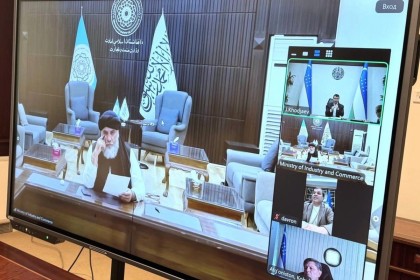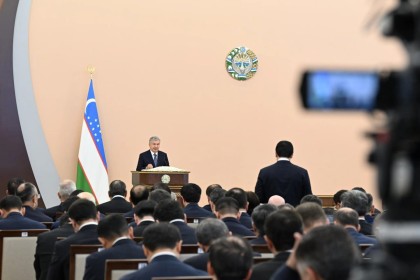An interim session of the Foreign Investors Council under the President of Uzbekistan took place on November 20 in Tashkent. The session was organized by the Ministry of Investment and Foreign Trade (MIFT) together with the European Bank for Reconstruction and Development (EBRD), the press service of the MIFT said.
The event was attended by Minister of Investment and Foreign Trade Sardor Umurzakov, Managing Director of the EBRD for Central Asia Bruno Balvanera, Head of the EBRD Representative Office in Uzbekistan, Alkis Drakinos, officials of the World Bank, International Finance Corporation, Asian Development Bank, Islamic Development Bank, heads of the State Assets Management Agency, Ministry of Economy and Industry and the Central Bank.
The session was also attended by heads of foreign companies: British American Tobacco (UK), JP Morgan Chase (USA), CNPC (China), KNOC (South Korea), Lukoil (Russia), Knauf ( Germany), Carlsberg (Denmark), Posco Daewoo (South Korea) and others. In addition, the event was attended by experts from consulting agencies Ernst & Young, KPMG, Deloitte, Pricewaterhouse Coopers and Dentons.
In his opening remarks, Sardor Umurzakov noted the importance of creating a “healthy and transparent business environment” and voiced the government’s firm intentions to continue improving the legal framework, lifting excessive administrative barriers and developing infrastructure.
He called on the session participants to focus on reforming the banking and financial sector, accelerating state property privatization and introducing methods of asset valuation, which will significantly increase Uzbekistan’s investment attractiveness, help attract additional investments, and in general improve the country's economic growth figures.
In his speech, EBRD Advisor Georgy Kvirikashvili shared his vision for the Council - the structure will be transformed into an open platform for discussion and review of pressing issues of foreign investors. Based on the specifics of incoming requests, working groups will be formed to examine specific cases and prepare solutions. In his opinion, such a format will significantly enhance the practical significance of the Council.
The session participants proposed introducing into the Uzbek legislation of the definition “holding company”, the concept of “through taxation”, various classes of shares and other global corporate law concepts, and to give investors greater flexibility in determining corporate policies.
In addition, the participants came to a common vision on the perspectives of swift privatization of the Uzbek banks and digitalization of the banking system.
The session also noted that it is necessary to develop a legal framework for creation and operation of representative offices of foreign entities and a unified e-registry, which will contain the complete information about the companies. This will help to conduct retrospective analysis of each company since its incorporation.












